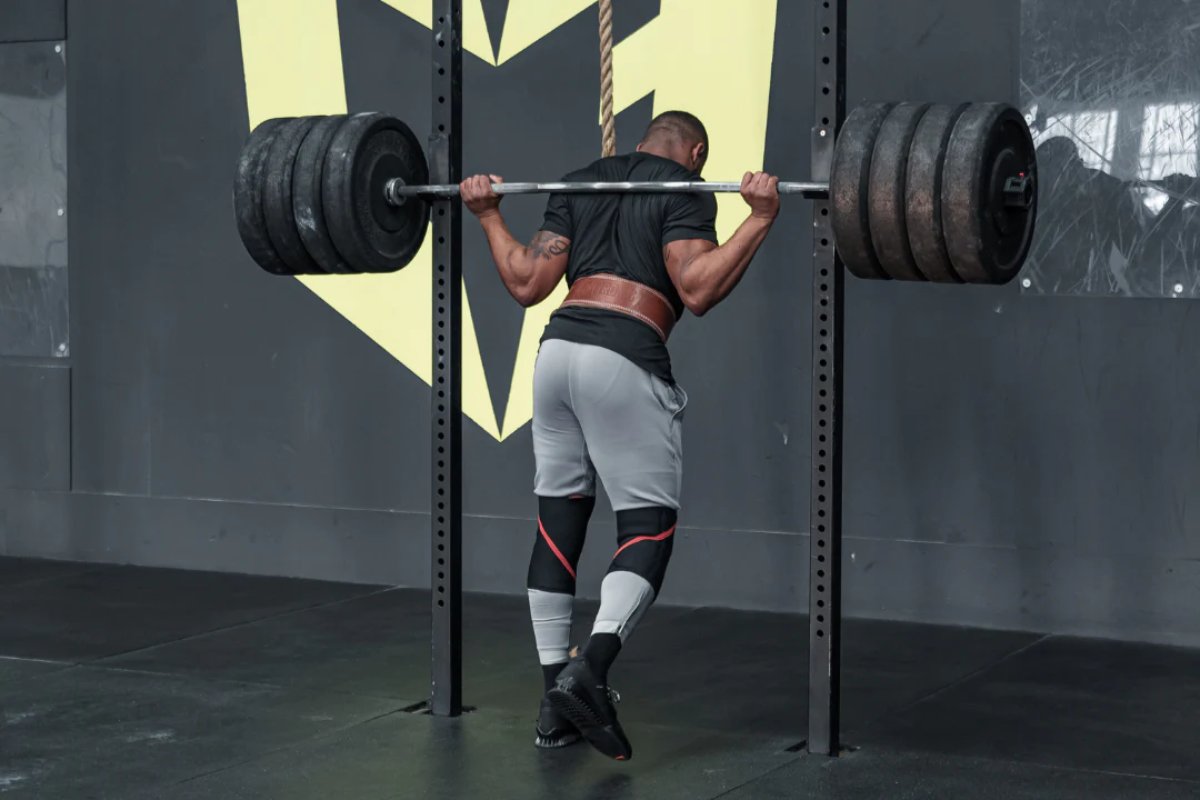Table of Contents
Introduction: Mastering the Art of the Barbell Squat
Barbell Squat Form – When it comes to building strength and muscle mass, few exercises rival the effectiveness of the barbell squat. However, executing this compound movement with proper form is crucial not only for maximizing results but also for preventing injury. In this comprehensive guide, we’ll delve into the nuances of perfecting your barbell squat form, ensuring you reap all the benefits while minimizing the risks.
Understanding the Basics: What is a Barbell Squat?
Before diving into the intricacies of form, let’s clarify what a barbell squat entails. Simply put, a barbell squat is a strength training exercise that targets multiple muscle groups simultaneously, including the quadriceps, hamstrings, glutes, and lower back. It involves lowering your body into a squat position while holding a barbell across your upper back, then pushing through your heels to return to a standing position.
Benefits of Proper Form
Mastering proper form in the barbell squat offers a multitude of benefits:
– Maximized Muscle Engagement: Executing the movement correctly ensures that the targeted muscle groups are effectively activated, leading to greater muscle growth and strength gains.
– Injury Prevention: Maintaining proper alignment and technique reduces the risk of strain or injury to the joints and soft tissues.
– Functional Strength: The squat is a functional movement pattern that translates to real-life activities, improving overall strength and mobility.
– Boosted Metabolism: As a compound exercise, the barbell squat elicits a significant metabolic response, aiding in fat loss and calorie expenditure.
Key Elements of Proper Barbell Squat Form
Achieving optimal results from your barbell squat requires attention to detail in the following areas:
Foot Positioning and Stance
Your feet should be shoulder-width apart or slightly wider, with toes pointed slightly outward. This stance provides a stable base of support and allows for proper alignment of the knees and hips throughout the movement.
Core Engagement
Before descending into the squat, engage your core muscles by bracing them as if preparing to receive a punch. This helps stabilize the spine and maintain proper posture throughout the exercise.
Depth of Squat
Aim to descend until your thighs are parallel to the ground or slightly below, ensuring full range of motion while maintaining tension in the muscles. Going too shallow limits the effectiveness of the exercise, while going too deep can place excessive strain on the knees.
Hip and Knee Tracking
As you lower into the squat, focus on tracking your hips back and down, as if sitting back into a chair. Simultaneously, ensure that your knees track in line with your toes, avoiding inward collapse or excessive outward flare.
Upper Body Position
Maintain a proud chest and neutral spine throughout the movement, avoiding rounding or arching of the back. Keep your head in a neutral position, with eyes focused straight ahead or slightly upward.
Barbell Placement
Position the barbell across the upper traps, resting it comfortably on the meaty part of your shoulders. Grip the barbell firmly with hands slightly wider than shoulder-width apart, elbows pointing down and back.
Common Mistakes to Avoid
Even seasoned lifters can fall prey to these common errors in barbell squat form:
Rounding of the Lower Back
Allowing the lower back to round excessively increases the risk of spinal injury and diminishes the effectiveness of the exercise. Focus on maintaining a neutral spine by bracing the core and keeping the chest lifted throughout the movement.
Knee Valgus Collapse
When the knees collapse inward during the squat, it places undue stress on the knee joints and can lead to injury over time. Ensure proper alignment by actively pushing the knees outwards in line with the toes.
Heel Elevation
Lifting the heels off the ground shifts the weight forward onto the toes, compromising balance and stability. Keep your weight distributed evenly across the entire foot, with heels firmly planted throughout the movement.
Incomplete Range of Motion
Stopping short of reaching parallel or below limits the activation of key muscle groups and hinders progress. Work on gradually increasing flexibility and mobility to achieve full depth in your squats.
Conclusion: Elevate Your Squat Game
Perfecting your barbell squat form is a journey that requires patience, dedication, and attention to detail. By mastering the key elements outlined in this guide and avoiding common pitfalls, you can unlock the full potential of this powerhouse exercise. Remember, consistency is key, so keep refining your technique and watch as your strength and physique soar to new heights.
FAQs (Frequently Asked Questions)
1. How often should I incorporate barbell squats into my workout routine?
– For optimal results, aim to include barbell squats in your routine 2-3 times per week, with adequate rest days in between to allow for recovery.
2. Can beginners perform barbell squats safely?
– Yes, beginners can safely perform barbell squats by starting with lighter weights, focusing on mastering proper form, and gradually increasing intensity over time.
3. Should I wear a weightlifting belt when performing barbell squats?
– While some lifters find benefit in using a weightlifting belt to support the lower back and core, it’s not necessary for everyone. Experiment with and without a belt to see what feels most comfortable and supportive for you.
4. Is it normal to experience muscle soreness after performing barbell squats?
– Yes, mild muscle soreness is normal, especially for beginners or after increasing weight or intensity. However, severe or persistent pain may indicate poor form or overtraining and should be addressed accordingly.
5. Can I modify the barbell squat if I have mobility limitations or injuries?
– Yes, there are several variations of the squat, such as the goblet squat or box squat, that can be tailored to accommodate individual needs or restrictions. Consult with a qualified fitness professional for personalized guidance and modifications.

